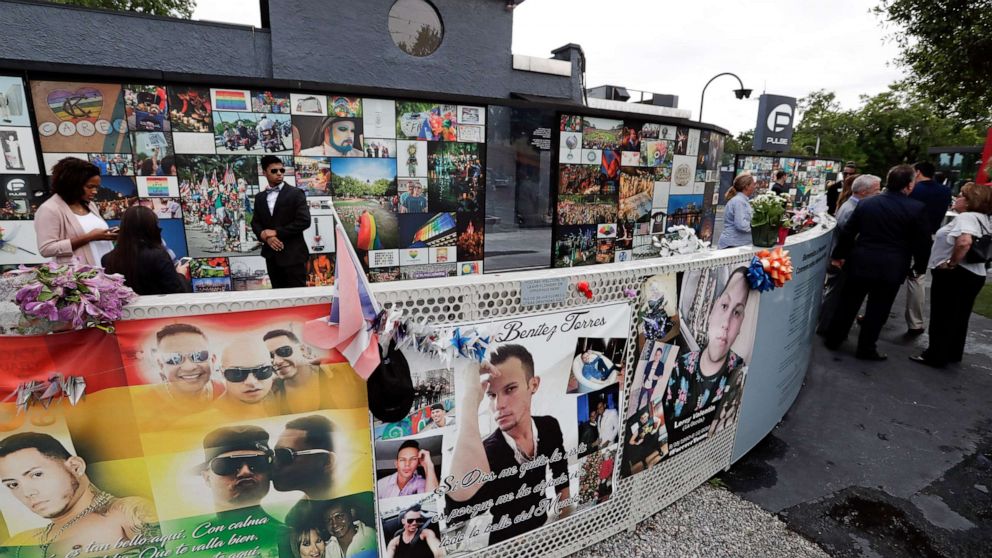
The court ruled that the plaintiffs fell short, failing to establish that the Islamic State plotted the attack alongside Mateen or knew of it in advance.ĭuring a round of oral arguments last May, plaintiffs' appellate attorney Keith Altman argued that without YouTube, Twitter and Facebook, the terrorist organization would likely be little more than "50 guys in the desert jumping around a campfire." The plaintiffs' legal team pointed to the Islamic State's use of YouTube to disseminate beheading footage and recruitment videos that helped the group bring thousands of foreigners into its ranks. They alleged that the tech giants violated the aiding and abetting provision of the Anti-Terrorism Act by allowing the Islamic State to spread propaganda on the companies' platforms, contributing to the radicalization of Mateen and countless others across the globe.Īffirming a federal judge's dismissal of the case, the appeals court on Monday noted that lawsuits brought under the Anti-Terrorism Act must show that the crime in question was "committed, planned or authorized" by a designated foreign terrorist organization. The plaintiffs - some of the individuals who were injured in the attack along with the estates of some of the victims - sued Facebook, Twitter and Google, YouTube's parent company, in federal court in 2018. An FBI investigation revealed that Mateen, a U.S.-born security guard of Afghan descent, avidly consumed the group's jihadist propaganda videos online in the time leading up to the attack.

In the aftermath of the attack, the Islamic State called Mateen a martyr and portrayed him as a soldier of its caliphate. Circuit Judge Adalberto Jordan, a Barack Obama appointee, wrote in the 31-page ruling.

Mateen’s rampage, but we agree with the district court that the plaintiffs failed to make out a plausible claim that the Pulse massacre was an act of 'international terrorism' as that term is defined in the ," U.S. "We are deeply saddened by the deaths and injuries caused by Mr. The shooter, Omar Mateen, professed allegiance to the Islamic State at the club before he was killed in a standoff with law enforcement. At the time, it was the deadliest mass shooting in modern U.S. She has changed her last name and told her son not to tell friends of their connection to the case, the deadliest attack on the LGBTQ community in US history.(CN) - The 11th Circuit on Monday rejected an appeal from victims of the Pulse nightclub massacre who were looking to hold YouTube, Facebook and Twitter liable for hosting terrorist propaganda that purportedly contributed to the killer's radicalization.Ī three-judge panel for the appeals court ruled that the Anti-Terrorism Act - the federal law under which the victims were suing - provides no relief because the 2016 Orlando club shooting did not amount to "international terrorism."įorty-nine victims died in the attack at Pulse, a popular destination for the Orlando gay community. Her focus now is on raising her nine-year-old son, who is aware of what his father did, “to be normal”. She’s only just stopped wearing disguises when she goes out, and after living off her late husband’s $1,000 a month social security checks, has begun to look for work.īut after being placed on a no-fly list, she still gets stopped when trying to board flights.īefore catching a flight to Chicago to speak at Muslim Legal Fund of America’s annual gala in 2020, she was detained by TSA officials and questioned for two hours, missing her flight. Ms Salman returned to the town of Rodeo, California, where she grew up.
Pulse nightclub shooting trial#
It emerged during the trial that Mateen had spontaneously decided to target Pulse, and the government’s case against Ms Salman fell apart.ĭefence lawyers said the FBI coerced Ms Salman’s statement and she signed it because she was exhausted after extensive questioning and feared losing her young son.Īfter her acquittal, domestic violence advocates questioned how the charges had ever been brought. Ms Salman was arrested in San Francisco in 2017 and spent a year in prison before going on trial in March 2018. She later falsely confessed to casing the Pulse nightclub with Mateen, and claimed she had advance knowledge of his intentions to target the club.

Towards the end of the interrogation, she signed a statement admitting she had seen Mateen looking at extremist sites and expressing anger at events in the Middle East.


 0 kommentar(er)
0 kommentar(er)
